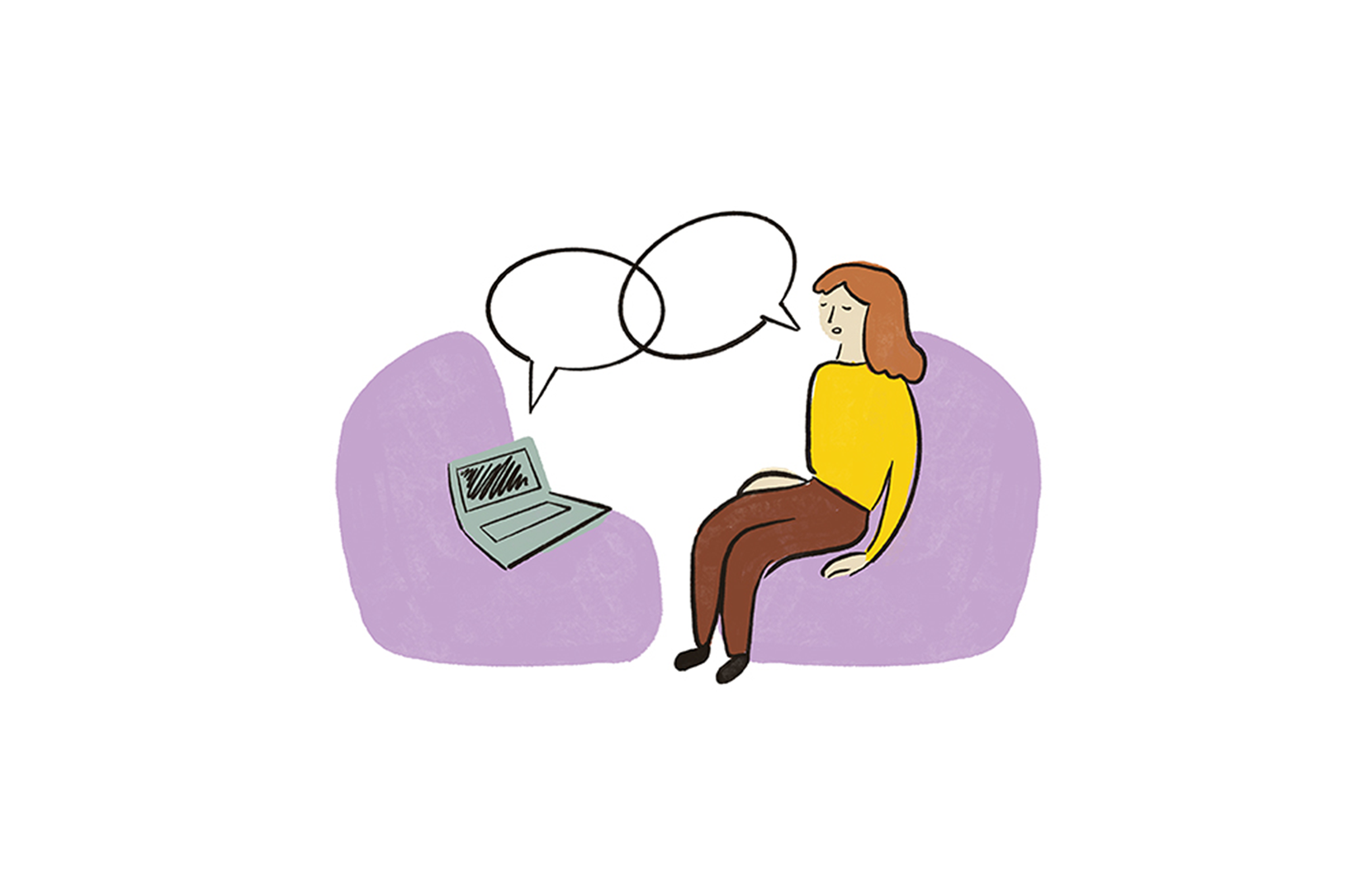In the midst of a pandemic, remote therapy is making its way into the light. With the ongoing stress surrounding COVID-19, school, work, and life, it’s best that counselling services continue to be offered, even if they’re not face-to-face. October is Mental Health Awareness Month, so let’s talk about mental health.
Many of us would expect that in-person therapy is more effective than video or phone counselling, as there is more interaction and the feeling of a safe, private space with someone you can open up to. However, Annelise Lyseng, a psychologist at MacEwan’s Wellness and Psychological Services, said that teletherapy has been a pleasant surprise.
Lyseng noted that MacEwan University moved to remote therapy back in March. When MacEwan’s Wellness and Psychological Services first made the shift, there was a decrease in the number of students accessing the service. This may have been because students were adjusting to new pandemic life and online coursework. They may have also not been aware of the transition to online counselling. Now that students are back into a routine this fall, numbers are back to normal.
Lyseng indicated that the effectiveness of teletherapy depends on how engaged the clients are, if they’re doing work between sessions, and how ready they are to make changes in their lives. If this is the case, she hasn’t noticed a big difference in terms of effectiveness between the two types of therapy.
“Sometimes people feel even more safe because you’re in your own space. You’re in a place where you feel comfortable, and as you look around your room, it helps orient you to the present. Some people will be petting their dog while they’re having a session, and that’s not something we’d be able to accommodate in the office,” Lyseng said.
Although teletherapy seems to be a great substitute for face-to-face sessions, there are certain situations that are not ideal for online counselling.
“When there are concerns such as domestic violence, psychosis, or intense suicidal ideation, it is often ideal to work with someone face-to-face. In these situations, students are always welcome to meet with us for an initial consultation where we will help them develop a safety plan and connect with appropriate community resources. With that said, for most of our clients, online counselling is a really good fit,” Lyseng explained.
Body language and vocal tone are crucial according to Lyseng. “Using the phone more often, you become much more accustomed to picking up on subtle changes in a person’s voice, or noticing when they’re taking a breath, what that breath sounds like, or if there’s some other change in the way they’re talking,” she said.
For understandable reasons, counselling over the phone is trickier than video. Even if only seeing someone from the shoulders up, Lyseng mentioned that it helps to see facial expressions or if the client starts moving around in his or her chair. Other body language is easier to pick up on in person, such as tapping toes or fidgeting hands. Through teletherapy, Lyseng has been asking questions with a lot more immediacy like, “What are you noticing right now? What are you feeling in your body?”
In general, remote counselling brings several benefits in terms of convenience. For example, it takes away the need for commuting, searching and/or paying for parking, and finding babysitters or childcare for those with children. Also, Lyseng said that she has received feedback from at least one person that phone counselling has helped them to feel more comfortable reaching out since they didn’t have to sit in the waiting room or feel anticipatory anxiety.
According to The New York Times, a large drawback of teletherapy is that it can be difficult to find privacy. Especially with COVID-19 around, many people are studying and/or working from home. Clients may try to find privacy in their car, in the bathroom, or in the closet. It is sometimes tough to eliminate the worry that roommates or family members can listen in on therapy sessions.
Another barrier to teletherapy is technological glitches. Sometimes the video may lag or there isn’t a good connection. The positive side is that Doxy, the telehealth-specific platform that MacEwan uses for sessions, is easy to use without having to download any software. All you have to do is open the emailed link and enter the virtual waiting room.
Teletherapy isn’t a brand new concept; there are online services like Talkspace and BetterHelp, released in 2012 and 2013, respectively. However, Zara Greenbaum for the American Psychological Association (APA) mentions that text-based therapy services such as these can cause problems. This is because clinicians “have very little information about a patient’s surroundings, including where the person is located and who might be reading or influencing written exchanges.” It is also more difficult to work without visual and audio cues. Working with services like Talkspace or BetterHelp means dealing with asynchronous communication, leading both parties to miss out on tone.
If you are interested in counselling, contact the reception desk at 780-497-5063 or email WPS@macewan.ca to book an initial consultation. This is a 20- to 30-minute conversation with a counsellor where you work together to develop a plan for moving forward. This plan may involve follow-up appointments, workshops, or community resources. MacEwan also offers group therapy, with groups on topics such as anxiety, depression, and managing life transitions that run each semester depending on student availability.
There is also an office set up in MacEwan’s Wellness and Psychological Services in case there are students who can’t do an initial consultation or a session from their own home for any reason. If so, students can call or send an email, specifying that they need a safe space on campus. This way, they can book a room in advance, which gets sanitized between each person who uses it.
Furthermore, MacEwan’s Wellness and Psychological Services has webinars and resources that are designed to support students during this time of physical distancing. An upcoming webinar this October includes Reel Resilience: Movies and Mental Wellness; students can register for free on MacEwanLife. In addition, the Peer Health Education Team has an online collection of self-help resources. Visit the WPS Streaming Page for supplementary webinars and videos to support wellness.
Teletherapy is still a very effective way to aid those seeking help and is worth a try. Let’s stick together through these uncharted times (and online classes).





0 Comments